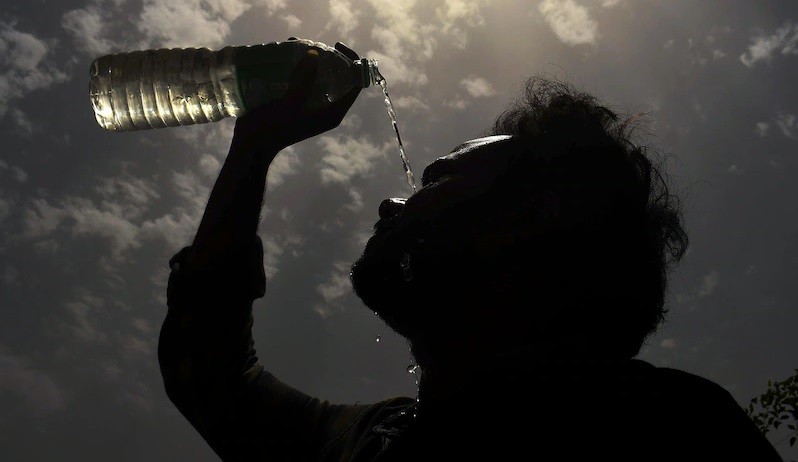01/06/2024
01/06/2024

NEW DELHI, June 1: A severe heat wave sweeping across India has resulted in the deaths of more than 50 people, primarily from suspected heat stroke and other heat-related illnesses. On Thursday alone, at least 29 people succumbed to the extreme heat in the eastern states of Bihar and Odisha, where temperatures soared above 113 degrees Fahrenheit.
According to a report by India Today, ten of the 29 victims in Bihar were workers involved in the ongoing general elections. India is nearing the end of its extensive, seven-phase election process, which has been conducted under relentless heat. The final phase is scheduled for Saturday, with voters braving the sweltering conditions to cast their ballots.
In Jharkhand, another eastern state, the heat claimed at least four lives on Thursday as temperatures exceeded 117 degrees Fahrenheit. The central states of Madhya Pradesh and Uttar Pradesh reported at least five heat-related deaths, including two children aged 12 and 14. Meanwhile, Rajasthan, a state largely covered by the Thar Desert, recorded eight deaths, including two newborns, due to heat stroke, as confirmed by Dr. Ravi Prakash Mathur, Rajasthan’s public health director.
The extreme heat has also exacerbated a water crisis in India's capital, New Delhi. With temperatures rising, water consumption has increased while supply from drying rivers has dwindled. In some areas, residents are relying on water tankers dispatched by authorities to meet their daily needs.
The India Meteorological Department (IMD) has issued warnings of continued severe heatwave conditions in the eastern parts of the country, placing a "red alert" on northern states including Punjab, Haryana, Rajasthan, Madhya Pradesh, and Uttar Pradesh. The IMD has advised people in these regions to avoid exposure to the oppressive heat.
This current heat wave follows last year's deadly conditions, which killed over 100 people in India and neighboring Pakistan during April and May. The extreme temperatures also devastated vast areas of crops, impacting millions within the agricultural sector.
Scientists attribute the increasing frequency and severity of these heat waves to rapid global warming. They indicate that climate change has made such extreme weather events 100 times more likely, underscoring the urgent need for action to mitigate the impacts of global warming on vulnerable populations.


